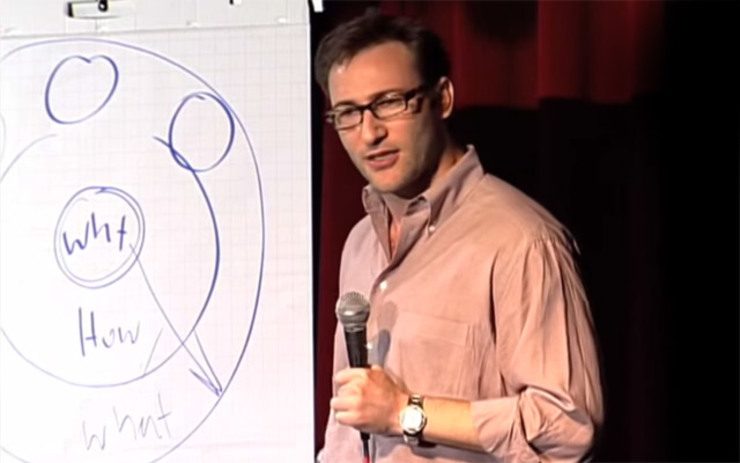SUMMARY
This is AI generated summarization, which may have errors. For context, always refer to the full article.

MANILA, Philippines – TED Talks have been criticized as an intellectual fluff – they are fun to watch and make you feel good, but they don’t actually inspire change or provide you with knowledge you can act on.
Such claim is noteworthy because the non-profit intends to promote “ideas worth spreading.” The event itself though has spread across the world, the Philippines included.
Self-organized Ted Talks have been held at the University of the Philippines-Diliman, Ateneo de Manila University, and the University of Santo Tomas, and there is even an upcoming corporate one at the Manila Electric Company.
While I cannot defend the TED organization as a whole, I do believe some of their talks are meaningful, particularly if we are to take them and apply them locally. In other words, some speakers truly have “ideas worth spreading,” and these are ones that we should spread in the country.
Start with ‘why’
A prime example of such a talk is Simon Sinek’s talk, “Start with why: how great leaders inspire action.”
The English author has no direct connection to the Philippines – nor does his publicly available biography give clue as to whether he has been in the country – but his message should directly resonate with a Filipino audience.
Over the brief video, Sinek makes the case that most companies communicate from the outside-in, as diagrammed in what he calls the golden circle. Most begin with what they do (example: we sell computers) or how they do it (example: we make beautifully designed, intuitive-to-use computers).
Few firms, like Apple, begin with why. According to Sinek, Apple’s why is simple. Yet its expression is what accounts for their astronomical success: They want to challenge the status quo.
The fact that they achieve this through their beautifully designed, intuitive-to-use computers is practically an afterthought, given that people connect with emotions and not technical specifications or product features.
As a tech journalist, I have observed that most companies in the Philippines, particularly start-ups, tend to focus on the what or the how, rather than the all crucial why. This is only natural. As an emerging market, the Philippines represents one big land of opportunity.
It only makes sense for Filipino entrepreneurs to think in terms of what part of Philippine technology they will conquer and how they will achieve this. It’s easy to overlook why they set out on the entrepreneurial journey in the first place, and this is a problem I’ve encountered first-hand.
Going back to ‘why’
While I work for the startup ZipMatch, I definitely do not consider myself an entrepreneur. By the time I joined the company in October this year, the company already had more than 40 people; backed by 4 investment firms; and was generating revenue.
Still, despite this traction, we had either gotten away from our why. We were too focused on the what.
For example, we sell property leads to real estate developers, so people can find the best homes. We were also too focused on the how: we curate real estate listings on our site, provide valuable knowledge about home buying, and match prospective home owners with the right developer through a personal concierge service.
Yes, in some sense, our why was to get as many Filipinos into homes as possible, but that was just the beginning. There was a deeper why that we were losing sight of: Why was it important for Filipinos to own homes in the first place? Many Filipinos, after all, live their lives just fine without ever owning a piece of property.
Our CEO, John Dang, had us go through an exercise modeled on Sinek’s talk, only instead of starting from why, we were going back to why.
We determined that it’s important for Filipinos to buy homes for 4 primary reasons: investment, family, security, and achievement, each of which connected to even deeper purposes.
For instance, buying a home as an investment, would lead to Filipinos having more wealth or financial security, as property is an asset that appreciates. Financial success of this kind would lead to even deeper purposes, like happiness, such as experiencing the good life, having freedom, and finding security in old age and retirement.
That these benefits could only be described in imperfect terms shows their accuracy: according to Sinek, what moves and appeals and inspires people the most is most often the hardest to put into words.
By determining these purposes, our firm can now begin to lead with why – both internally with our employees and externally to prospective home owners – so that rather than trying to drive them, they are driven.
As such, every Filipino entrepreneur, social entrepreneur, and businessperson should take the time to watch it. (WATCH: Start with why: how great leaders inspire action). – Rappler.com
Rappler business columnist Ezra Ferraz is also the chief content officer at ZipMatch, a tech company backed by Ideaspace Foundation, Hatchd Digital, IMJ Investment Partners, and 500 Startups. He brings you Philippine business leaders, their insights, and their secrets via Executive Edge. Connect with him on Twitter: @EzraFerraz
Add a comment
How does this make you feel?
There are no comments yet. Add your comment to start the conversation.